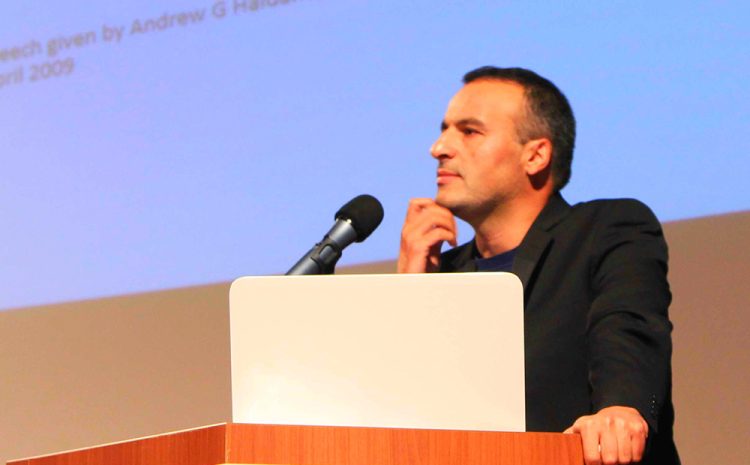
Reviewed by Farhad Reyazat – PhD in Risk Management
‘’Nexus: A Brief History of Information Networks from the Stone Age to AI” by Yuval Noah Harari is a comprehensive exploration of how information networks have profoundly influenced human history, society, and the future. Harari traces the evolution of these networks from the earliest human communication systems to the digital and AI-driven networks of today, offering a deep analysis of their role in shaping the world.
Summary
“Nexus” is divided into several key themes, each exploring different aspects of information networks throughout history:
1. Historical Evolution:
Harari begins by exploring the roots of human communication, starting with the most primitive forms used by early Homo sapiens. He highlights how these essential networks laid the groundwork for more complex information exchange systems dominating human societies. The book delves into historical milestones, such as the canonization of religious texts like the Bible, which standardized and centralized information, and the use of propaganda in the 20th century by totalitarian regimes like Stalinism and Nazism to control and manipulate public perception.
2. Information and Power:
Much of “Nexus” focuses on the relationship between information and power. Harari illustrates how those who controlled information—whether through religious texts, political propaganda, or media—held the power to shape societies throughout history. He discusses how empires, religions, and governments have leveraged information networks to unify or divide populations, enforce laws, and maintain control.
3. Modern Challenges:
Harari transitions into discussing the contemporary challenges posed by modern information networks. He addresses the ecological and societal impacts of misinformation and the rise of AI. Harari warns that AI-driven networks, which now influence everything from financial markets to social media, could pose existential threats. He cautions that if left unchecked, these systems could lead to significant disruptions in society, potentially causing more harm than good.
4. Humanity’s Choices:
The final theme in “Nexus” centers on the choices humanity faces as we move deeper into the digital age. Harari emphasizes the need for a balanced approach to managing information networks. He urges readers to view information as a tool or weapon and as the raw material for truth and knowledge. Harari calls for a conscious effort to harness the power of these networks for the betterment of society rather than allowing them to exacerbate divisions or perpetuate falsehoods.
Review
“Nexus” has been widely praised for its insightful and thought-provoking analysis of information networks. Harari’s ability to connect historical developments with contemporary issues makes the book particularly relevant in today’s digitally-driven world.
Positive Aspects:
– Comprehensive Analysis: Harari’s deep dive into the evolution of information networks across different eras provides a nuanced understanding of their impact on human history. He demonstrates how these networks have shaped societal structures, governance, and power dynamics.
– Engaging Writing: Harari’s engaging and accessible writing style makes complex historical and technological topics understandable to a broad audience. He masterfully weaves historical events and modern-day challenges, creating a compelling narrative that keeps readers invested.
– Thought-Provoking: “Nexus” challenges readers to think critically about the role of information in society. Harari’s discussion of AI and its potential impacts on the future is particularly relevant, as it raises important ethical and philosophical questions about the direction humanity is heading.
Criticisms:
– Dense Content: Some readers may find the book’s extensive historical detail overwhelming. Harari covers a vast amount of ground, and while this depth is one of the book’s strengths, it can also make for a dense and challenging read.
– Pessimistic Outlook: Harari’s focus on the potential dangers of AI and information networks can sometimes be overly pessimistic. While his warnings are well-founded, some critics feel that he underplays the positive potential of these technologies to improve human life.
Conclusion
“Nexus: A Brief History of Information Networks from the Stone Age to AI” is essential for anyone interested in understanding how information has shaped human history and will continue to influence the future. Harari’s comprehensive analysis, engaging writing, and thought-provoking insights make this book informative and compelling. Despite some criticisms of its dense content and pessimistic outlook, “Nexus” critically examines the intersection between history, technology, and society, urging readers to carefully consider the choices we face as we navigate an increasingly complex information landscape.






13 replies on “Nexus: The Evolution of Information Networks and Their Impact on Human Civilization”
The Real Person!
Author Nina Dendy acts as a real person and passed all tests against spambots. Anti-Spam by CleanTalk.
I came across you guys and was checking out your website. It’s good!
The Real Person!
Author Tyree Parra acts as a real person and passed all tests against spambots. Anti-Spam by CleanTalk.
Oh great content
The Real Person!
Author Marylou Batchelor acts as a real person and passed all tests against spambots. Anti-Spam by CleanTalk.
I like the article and recommend it
The Real Person!
Author Corey Overton acts as a real person and passed all tests against spambots. Anti-Spam by CleanTalk.
Hello
I hope this message finds you well. My name is Mathew, and I am a Research Assistant in the Research and Development Department one of the leading biopharmaceutical company based in London, England. I am reaching out to explore a potential partnership with your platform
The Real Person!
Author Spencer France acts as a real person and passed all tests against spambots. Anti-Spam by CleanTalk.
Very Informative
The Real Person!
Author Leatha Nagy acts as a real person and passed all tests against spambots. Anti-Spam by CleanTalk.
Excellent Content
The Real Person!
Author Lyda Keynes acts as a real person and passed all tests against spambots. Anti-Spam by CleanTalk.
Cool article
The Real Person!
Author Freda Aspinall acts as a real person and passed all tests against spambots. Anti-Spam by CleanTalk.
cool
The Real Person!
Author Rocky Hawthorne acts as a real person and passed all tests against spambots. Anti-Spam by CleanTalk.
good
The Real Person!
Author Lynne De Mole acts as a real person and passed all tests against spambots. Anti-Spam by CleanTalk.
Website is good
The Real Person!
Author Velva Harmer acts as a real person and passed all tests against spambots. Anti-Spam by CleanTalk.
I came across you guys and was checking out your website. It’s good
The Real Person!
Author Marion Greenwood acts as a real person and passed all tests against spambots. Anti-Spam by CleanTalk.
Hi, excellent
The Real Person!
Author Star Bruton acts as a real person and passed all tests against spambots. Anti-Spam by CleanTalk.
Good